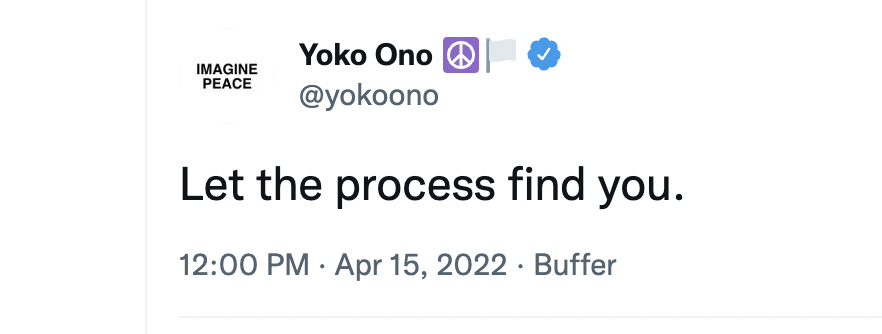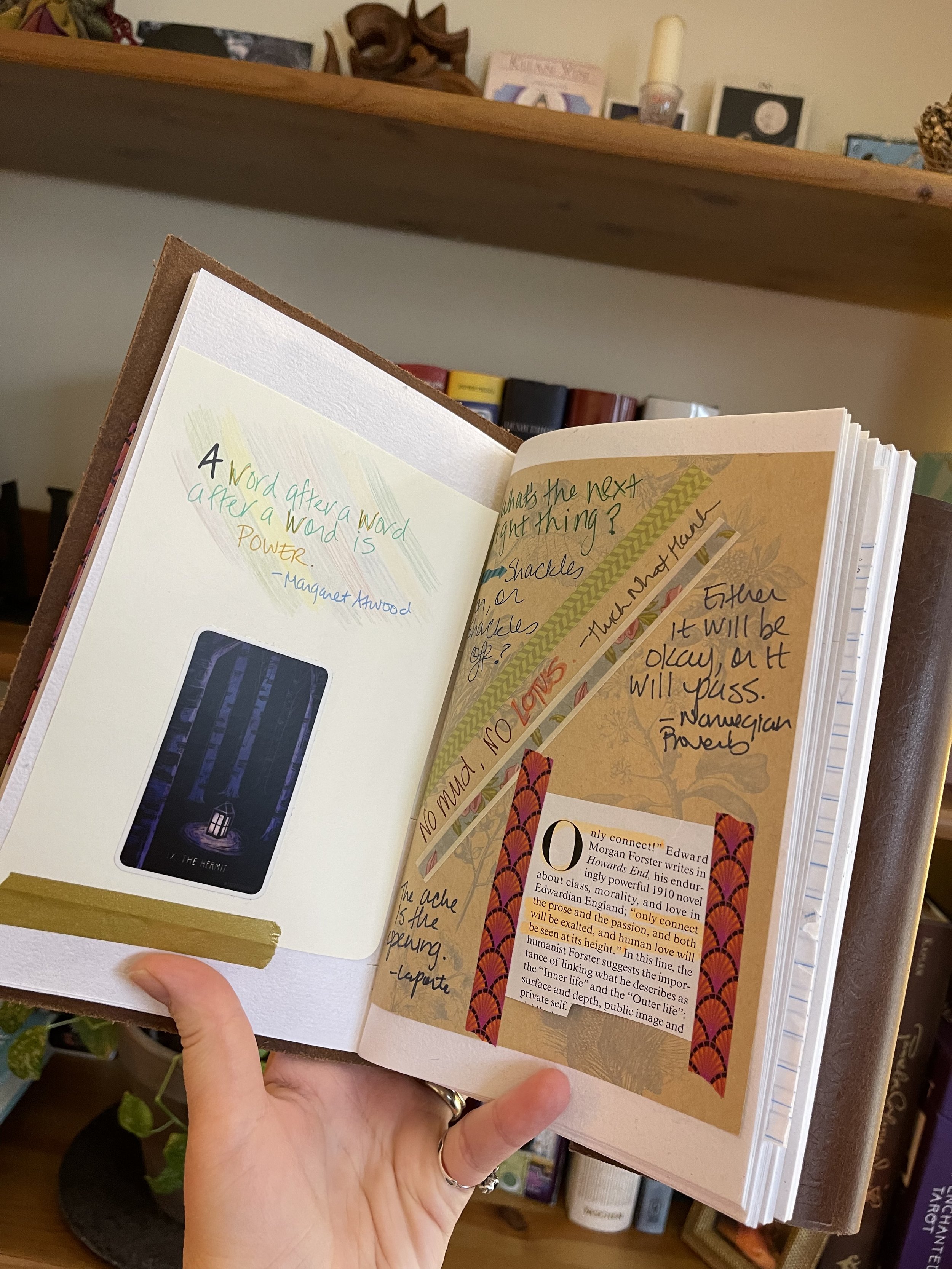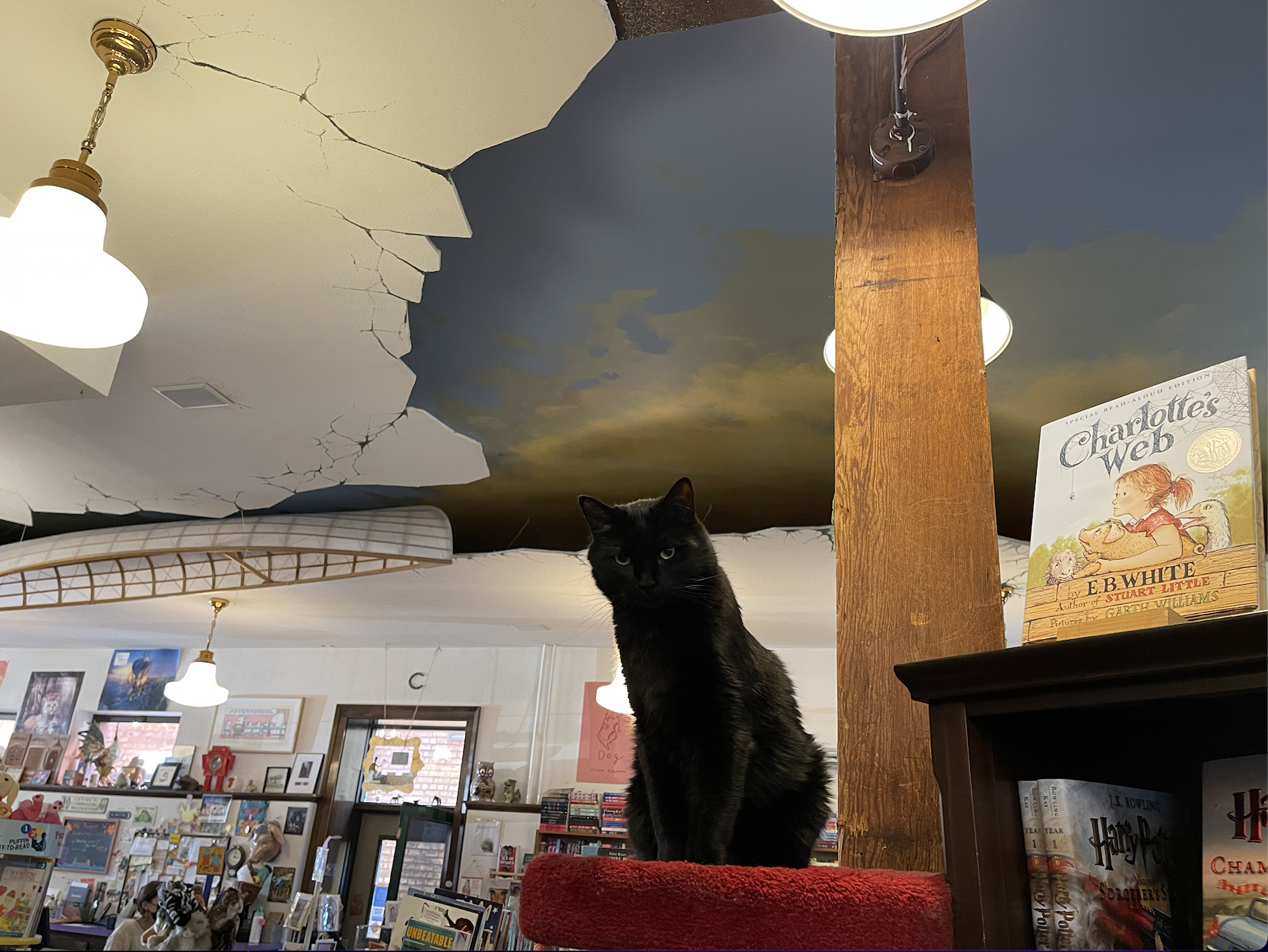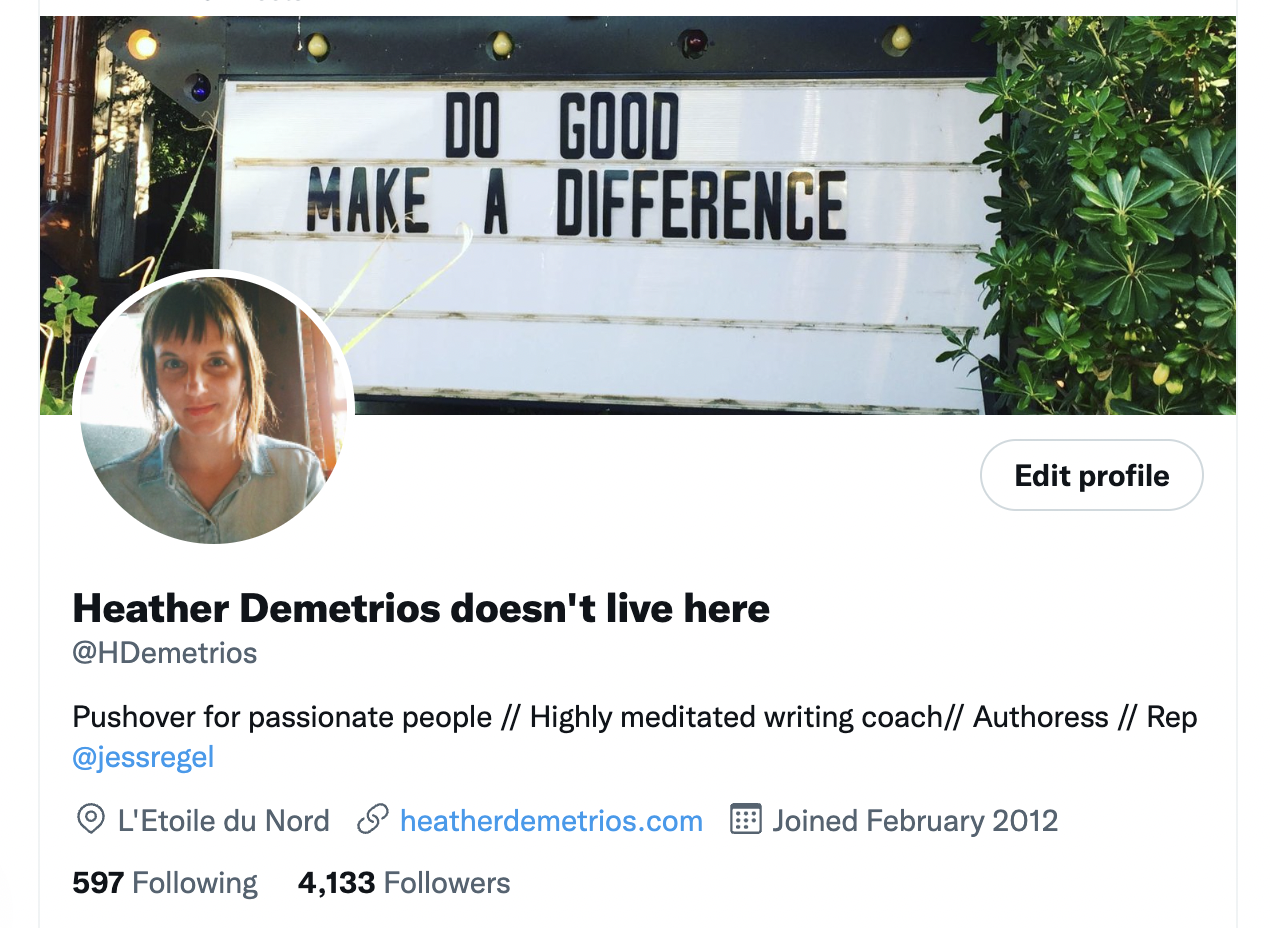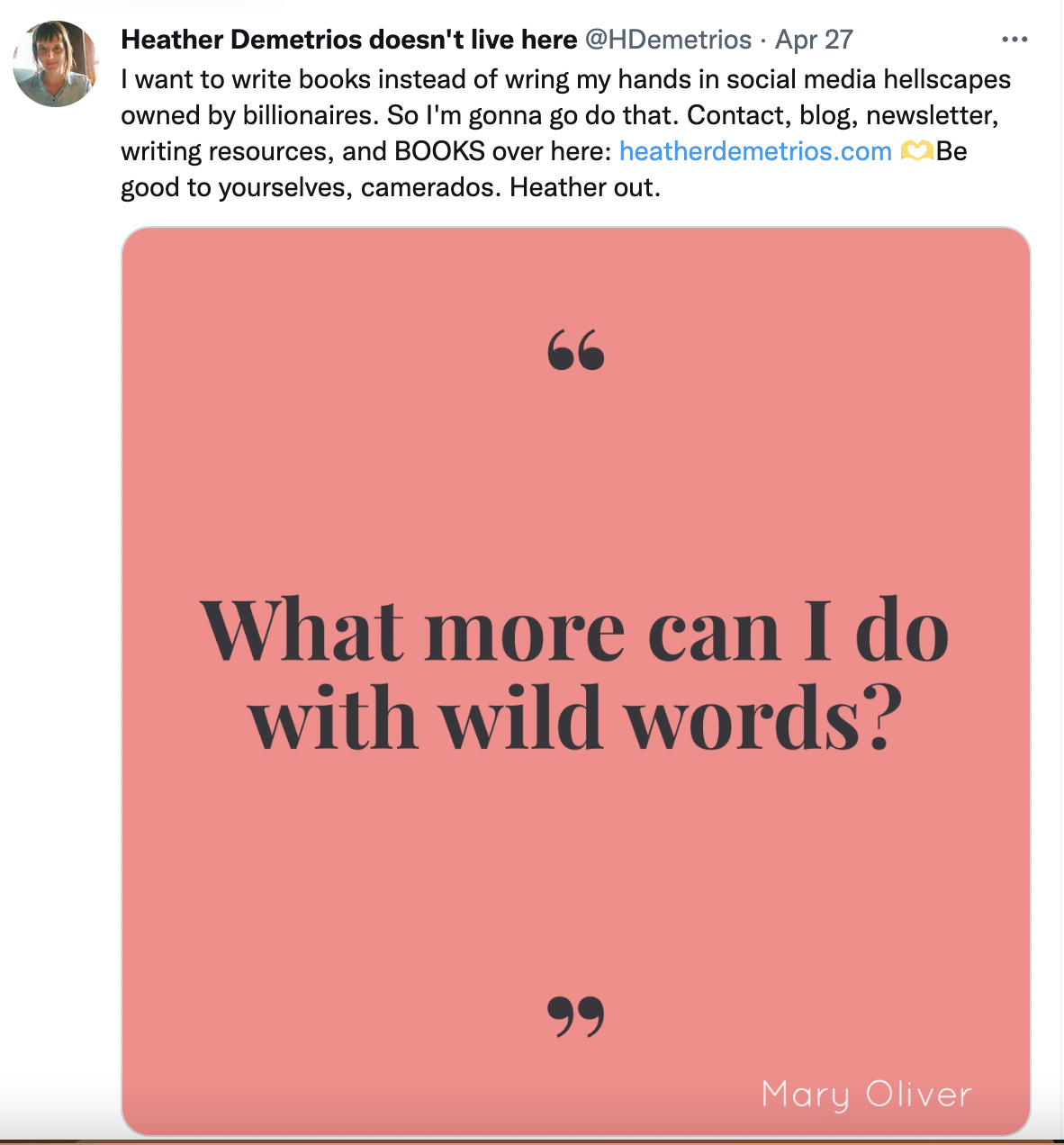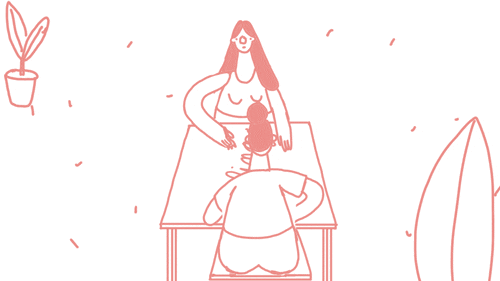Let me start off this post by reminding you of something that is easy to forget when you’re in the writing trenches:
Whatever you are writing - we need it.
We need the sad (provided by yours truly) and we need the hilarious and the sexy and the weird and the adventures and the wizards and the dragons and the little girl looking for her stuffed animal and a pigeon who can't drive for shit. We need them all.
Sometimes you’re in the flow zone with your work, and sometimes you’re not.
The “not” times can be deeply painful and really do a number on your self-confidence, your heart, your spirit. If you’re in that place right now - courage, dear heart. This is normal:
Creativity is all about ebb and flow and learning how to wait for the waves just as skillfully as riding a big one to the shore.
I wanted to take this chance at the end of the year to share my journey of writing my work-in-progress with you because I know that many of you lose a bit of heart each time you see another writer has finished a book or revision and you’re still stuck. You might remind yourself that you’re only seeing the highlights, but that can be cold comfort.
Let’s peek behind the curtain, shall we?
The Story of Writing My Current Work-in-Progress
I am happy to report that I recently finished another revision of my WIP, A Correspondence.
This is my first novel written specifically for adults, not a YA audience, and it’s been a really big learning curve. Let’s also remember that, while it was really exciting to send the full revision to my agent (based on her last notes), I know there is much more to do. I already have a list of fixes, then I’ll have her notes to contend with. Who knows when we’ll go on sub and what the response will be? Right now, though, I’m celebrating. It’s so important to make space to do that.
Don’t just celebrate the book deal: Celebrate the great sentence, the finished tough scene, the first draft, a whole week of writing.
I’m not just celebrating finishing the draft: I’m celebrating getting to be in the flow zone and have that wild, mad dash to the finish line. I’d set a deadline for myself to get it to her by Christmas, and I did. Turns out, I really need that hard deadline and I save up all my writing and energy for that last week. Do you do that, too? That’s not procrastination, that’s channeling big flow (at least for me).
What’s Your Pressing Thing?
I’m not always in the flow zone because LIFE, so know that I wasn’t breezily writing this thing. Even if you know your process inside and out, even if you’re consistent and show up, even if you want it so bad…sometimes there are other more pressing things in life than writing a story. In fact, there are often more pressing things. And that’s okay.
My pressing thing is chronic pain and the endless question of how to cultivate and cobble together a livelihood that reflects my values and passions. There are, of course, many demands on my time and energy and those are pressing, too.
Take a second to identify what your pressing things are. It helps to put having less time to write into perspective. Permission to be human.
The Book’s Timeline
I began writing this book during lockdown in 2020.
In the early days of 2020 COVID lockdown, the entire plot for this book literally downloaded into me. And the characters. And the world. I had the whole book. I could have written it in a few weeks, shoved it over to my agent, and moved on.
The last time that happened (my debut novel, Something Real), I wrote the book in six weeks.
This time, it took me six months to write 15 pages.
I kept trying to remind myself that this was okay. There was a global pandemic, and much of my energy went to staying safe, checking in with others, adjusting to COVID life, and holding as much space as I could for my writing community and friends and clients.
I’d also just had my last novel come out, Little Universes, and was in the process of going through final edits for Code Name Badass, which published in 2021. So I was a little busy.
I was in the creative cave as a coach—creating and teaching courses and workbooks and The Well.
But none of this was writing this book, and that got me down. I missed writing. This was a time where I had to be really honest with myself and admit that it was not a season for creating new work. This was tough, even though it was healthy to not put the burden of writing a new and very hard and painful book on myself at a time where so much was going on in my life and in the world at large.
My brain just couldn’t hold it all. And the book I was writing wasn’t an escape from the pain of the world—it was intended to go straight into the thick of it. So, of course I didn’t want to work on it during the height of the pandemic.
Turtle vs Hare
To recap: it took me 6 months to write 15 pages (September 2020).
It took me another two years to finish a first, messy draft, which I sent to my agent in September 2022.
Then It took me two months to re-write the beginning, per my agent’s recommendation, which gets us to now, December 2022.
This is precious. And it doesn't happen often. It's what writers live for.
So what was happening during those two years of slowly drafting?
I’d been slowly putting down words while I basically lived with war correspondents in my head. I read their memoirs, listened to them on podcasts, obsessively looked for specific bylines in the Times. (Is anyone else wondering when Tyler Hicks is going to take a break photographing in Ukraine??? No? I guess that's just me).
When I was a wee lass, I always thought I would be a war correspondent. A while back, I wrote about living in the Ukraine and the effect this war in particular has had on me.
I'm being given the chance to have that job, through my characters, and I disn’t want to rush it.
When it wakes me up in the middle of the night, my characters talking to each other, and the whole thing is in conversation with my entire life around me. It took a while to get to this point with the book, despite living with the subject matter daily.
But even when I’m not in the zone, my writing is my best teacher - whether or not I’m actually doing it. My relationship to it, how I respond to being in or out of flow, how I treat others on days I do or don’t write…all of it is fertile ground for waking up more and more to my life.
I know my process inside and out, but that doesn't mean that a book is a tidy thing so long as you know your process.
Every book has its own vibe, its own pace, its own requests of you. It's a relationship.
Knowing your process is what allows you to navigate that relationship without losing your ever-loving mind, and hopefully remembering once in a while that you actually are volunteering to write - it's not a sentence imposed on you by a federal court for being a cloud dwelling artist - and also...it's fun?
So that two years, there was actual writing, but then lots of living with the questions of the book, with the subject matter, the lives of my characters. I was constantly re-working their Character Keys (see my Unlock Your Novel workbook).
That was all writing, too.
But, then, some unexpected challenges came up….
Seasons of Doubt
Because my book is about war correspondents, I found my motivation over the whole course of writing the first draft ebbing and flowing, just like flow itself.
I wondered if I wanted to write about war anymore, if the world even needed another book about the worst aspect of human nature. I wrote about veterans and PTSD in I'll Meet you There and I'd spent enough time in WWII France with Virginia Hall for Badass. I have a partially finished WWII novel set in Hamburg. I have the beginnings of a biography about women in war. Was this obsession with war a way of punishing myself for my relative safety by living in war zones in my books?
(No. But I had to do some inner work to figure some stuff about that out, especially because both of my parents were Marines. It's complicated.)
So I tried to write other things. I mean, I really did try. I had a great reincarnation star-crossed-lovers thing going.
But I had these three characters. They were stuck in a city under siege and they had twenty-four hours to find the thing they needed. What the hell was I doing - didn't I realize there was a war on???
So I wrote half the book. Very slowly. But I still had one foot out the door. Shit, the world is in a bad way. Why couldn't I bring something sweet and tender into it? Why do I always have to work in the shadows?
And then Ukraine happened.
And, not to sound like a policy wonk, but I swear my book was based on Putin's Black Sea geopolitical maneuverings and it weirded me out. Like I had written the future. My book took place in an unnamed city in the Black Sea region, but my protagonist, like me, had lived with a missionary family in the Crimea, in the south of Ukraine, so Ukraine was all over this book.
But it was like my book had come to life before me, and in order to figure out for myself why people do this, why we do what we do as humans, I had to write it. Even if it never published. But what if it DID publish? Was that gross and wrong? To write this novel while pregnant women are being murdered in maternity wards?
I texted my agent: Was I exploiting this war by writing this book, even though I'd started it two years earlier? Was it wrong?
She texted back to remind me why we write and read and tell stories: they heal. They help us and others process. This was the time to write this book.
My characters texted too and told me that it's our job to keep the record of humanity. That's why they were out there, getting shot at, so could I please take my cozy ass back to my desk? I have an assignment, and so do they.
I always say every book is your teacher and I knew from day one that this book was going to teach me about evil.
About how to work around or through it, how to fight it, how to not lose hope because of how much of it there is in the world. It was going to teach me about what my responsibility was in the midst of it all. What was being asked of me, in terms of this lifetime and doing right by the miracle. And that scared the shit out of me because I tend to write about dark enough stuff thankyouverymuch.
I tell you this because I know many of you are not in this place of relief and joy of finishing a book. You're floundering or just feeling weird and aimless and sad.
I felt that way sometimes over the past two years, but not that often. Because I knew the book was there and the time wasn't right. I knew it was a season of listening and waiting.
So I could just be loose about it (with occasional existential freak-outs) and know that this book or whatever book wants and needs to be written would come through, so long as I created a good container for it to live and thrive in. Which is basically my life's work, this idea of tending to our writer selves all the time so that we are primed for these seasons of deep work.
It's important to keep the lights on and tend to the basics, and to trust that I have a process, and that my book is my teacher, and that both will find me if I can't seem to find them because I am a lighthouse, and I keep it burning so that they can find me in the sea of possible stories. I look for the ship with my name on it.
In the spirit of keeping the lights on, I now present one of my favorite tools from my toolbox:
laughter.
These belly laughs were curated by one of my favorite humorists, Jenny Lawson in her newest book, Broken (in the best possible way):
“Once high-fived a retail staffer who was helping me. Turns out she was waving to a friend outside the store. Still not over it.” @kirstenduke
"A friend thanks me for coming to their husband's funeral. My reply? "Anytime." @cardinalbiggles
New neighbors. Saw their wedding photo and said "Don't you miss the 80's?" They replied, "That was last year." It was 2005. @Lou_C69
A friend went and placed her order at drive thru. She then heard "Could you drive up to the speaker? You're talking the trash can." @gotcookies
I hope those people's stories made you laugh. I was literally crying when I read through the lengthy list in Jenny Lawson's book. I needed to break the stress cycle, and laughter does it every time. (Don't know what I mean by break the stress cycle? Read the Nagoski sisters' book Burnout.)
Wherever you are in the writing trenches, just keep going. You’ve got this.

